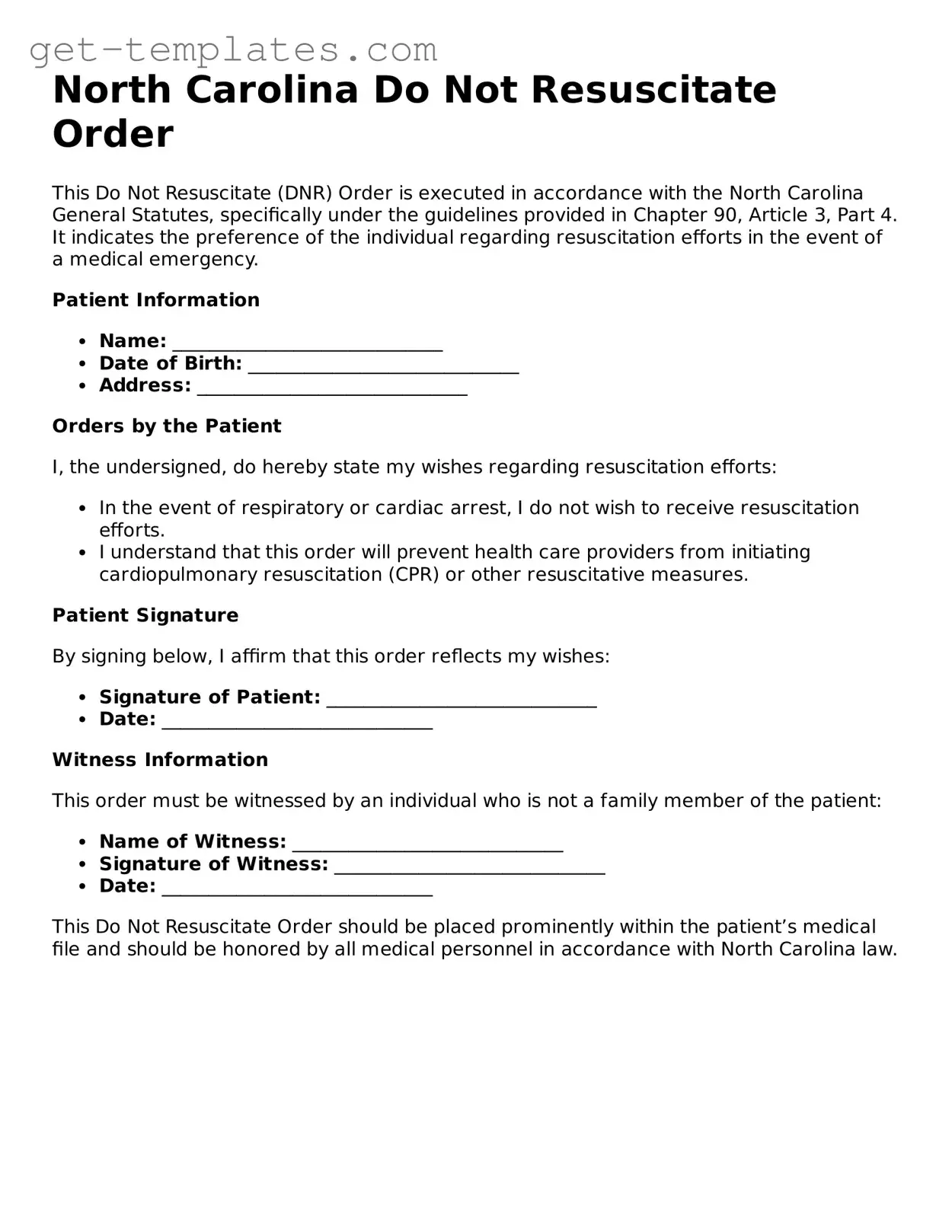Attorney-Approved Do Not Resuscitate Order Document for North Carolina
A Do Not Resuscitate (DNR) Order form is a legal document that allows individuals to express their wishes regarding medical interventions in the event of a cardiac arrest or respiratory failure. In North Carolina, this form plays a crucial role in ensuring that patients receive care aligned with their personal values and preferences, particularly at the end of life. Understanding the implications and procedures surrounding the DNR Order is essential for both patients and healthcare providers.
Get Document Online

Attorney-Approved Do Not Resuscitate Order Document for North Carolina
Get Document Online
You’re halfway through — finish the form
Finish Do Not Resuscitate Order online — edit, save, download made easy.
Get Document Online
or
⇓ PDF Form
